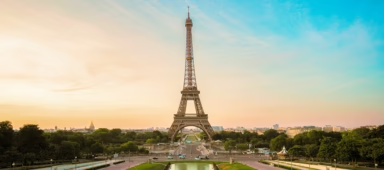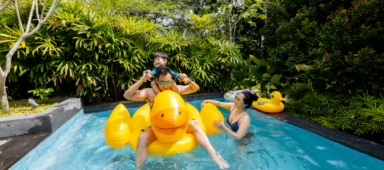Malaysians David Wu and Ving Lee are helping to fight childhood cancer by pedalling through the seven wonders of the world
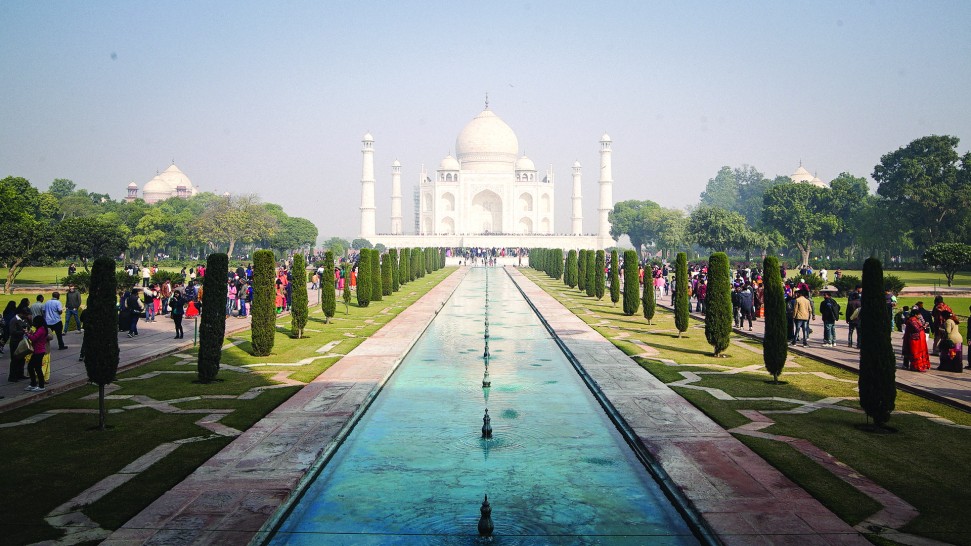
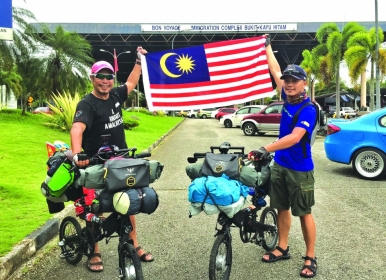
Some people run marathons, others shave their heads, but when it comes to raising money for charity, few people rival Malaysians David Wu and Ving Lee in going the extra mile. They’re going an extra 25,000 miles or 40,000 kilometres, in fact, on an epic two-year cycling journey to the seven modern wonders of the world. If Malaysians pledge to donate just RM1.00 (USD0.26) each, they hope to raise RM5 million (USD1.27 million) to help the National Cancer Society of Malaysia (NCSM) fight childhood cancer.
They call themselves the Seven Wunders. “It started out as a personal endeavour to cycle around the world. To do something totally outrageous at least once in my lifetime,” says Wu. “My previous two endeavours focused on helping flood victims and the less fortunate repair their homes,” he adds. In 2015, Wu walked 500 kilometres from Kuala Lumpur to Kota Bahru in Kelantan to raise money for flood victims in Kelantan, and in 2016, cycled 4,000 kilometres from his hometown in Kedah in search of his ancestral village in China.
“This time round, I knew it was going to be the last hurrah. I’m already 51 and the body can only take that much. Given that it would likely be the last crazy stunt I’d pull, I wanted it to be related to cancer,” he says. Wu’s sister died from breast cancer in 2014.
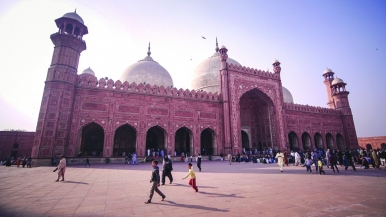
“I guess it all started when I watched her wither away and (I was left) feeling helpless. Charity was my way of dealing with that helplessness, by getting up and doing something.” He chose to focus on childhood cancer in honour of a friend’s five-year-old who had the disease.
Wu, a businessman in the food and beverage industry, and Ving, 35, a cameraman, left Kuala Lumpur on 31 August last year. They ticked off their first wonder, the Taj Mahal, in India and from there cycled to Jordan via Pakistan and Iran. As you read this, they have probably just left the Lost City of Petra and are headed for the Pyramids, an ancient rather than modern wonder, but one they couldn’t resist including. From there they’ll cycle to Europe to see the Roman Colosseum, before flying from the U.K. to Argentina for the South American leg, which takes in Peru’s Machu Picchu and Rio’s statue of Christ the Redeemer. Then it’s on to Chichén Itzá in Mexico, and a flight to Japan before making their way overland to the Great Wall of China.
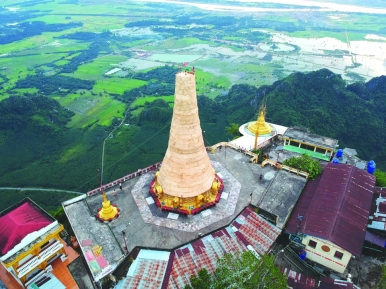
At seven months in they’ve already faced their share of problems. At the time of this interview, they had just spent five days in the Pakistani border town of Taftan, wrangling with immigration officers to let them pass into Iran after being accused of a one-day visa overstay.
“We knew it was a non-issue but cutting the red tape was a nightmare, hence the prolonged detention,” says Wu. “No one really knew what they needed in order to process the approval. We had to piece things together bit by bit as language was a huge barrier. Being left in the dark in a conflicted part of the country was quite (hair-raising).” They were eventually allowed to leave after intervention from Pakistani friends, the Malaysian High Commission and perhaps even, they suspect, the Pakistani prime minister.
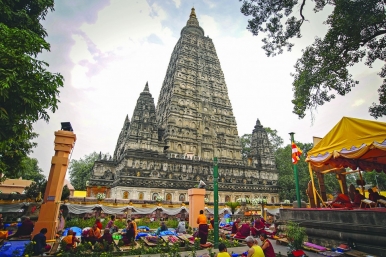
Besides the expected language barriers and cultural differences, their biggest challenge is maintaining their mental strength. “From homesickness, mechanical failures, frustrations, feelings of fear, loneliness, worries, bureaucracy, getting ripped off … the mind needs to be really strong to keep going,” admits Wu. Being Malaysian, they faced one additional hardship: finding food they like. “You could say having familiar food (or the lack of) would be a major hardship!” laughs Wu, who is a little fed up with roti and dhal right now.
The pair also face the small issue of spending hours on a bike every day. “Needless to say, it is a huge physical challenge having to cycle an average of 100 kilometres a day, but so far so good. No injuries or excessively sore butts,” he says, adding that there was no training at all prior to the start of the journey. Wu is, of course, being somewhat disingenuous about his fitness levels given his past walking and cycling endeavours.
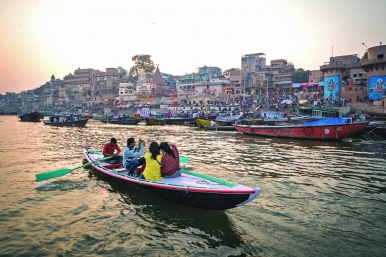
Wu met Ving, who is more of a novice, on his trip to China. “I was the cameraman for David when he searched for his ancestral village during the cycle to China and the experience left me in awe,” he says. “I could feel the emotions that David went through, and was inspired. When I found out that he was going to attempt the Seven Wonders, I asked to join him. He asked me to think very carefully first, so I took about a month to decide. I dropped everything and here I am today. My motivation is to see the world and have an adventure while I’m still relatively young, to photograph and document the journey and ultimately to gain an amazing life experience.”
The pair sleep in the cheapest guest houses they can find, or in the homes of friends and supporters. With room to carry just 30-35 kilogrammes on their bikes, they have sleeping bags but no tent. “Trust me, when one has cycled for 10 hours in a day, you’ll sleep well,” says Wu. “But often we need to fulfil other obligations such as writing updates or articles, responding to messages, planning the next day, archiving photos and editing before we sleep. There is plenty to do other than cycling.”
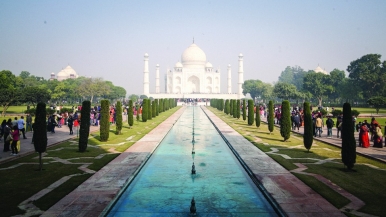
Yet as plentiful as the challenges are, they are far outweighed by the rewards of experiencing the world slowly and up close, whether it’s the mystical pagodas of Myanmar or the smile of a child running along beside them.
Wu says it’s the people they will remember the most. “The kindness and hospitality have been amazing. We have seen how a genuine smile, a firm handshake, and a warm hug can open doors and take you places. We also get to dispel misconceptions about certain countries and their people. And we delight in seeing how we have been able to affect quite a number of folks back home to initiate fundraising activities on their own. That’s a huge bonus and we hope to infect more in the future. We like this positive aspect of society best.”
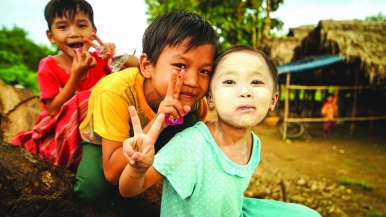
When they are lucky enough to have Wi-Fi connection, they check in with their support network back home. Wu worries about his 81-year-old mother, who is still coming to terms with her son’s journey, while Ving spends a lot of time reassuring his anxious girlfriend via WhatsApp. Besides food, family and friends, Wu says he misses simple things like taking a drive on the weekend. “Simply put, we miss the Malaysian way of life. You can take the Malaysian out of Malaysia but you can’t take Malaysia out of the Malaysian, right?”
In the end, their journey is as life-changing for Wu and Ving as it is for the children they will help. “It has taught us to know our strengths and weaknesses,” says Wu. “And that the world isn’t really what you see on television. And that the goodness of the human being is very much alive and well.” It certainly is. Wu and Ving prove it every day.



